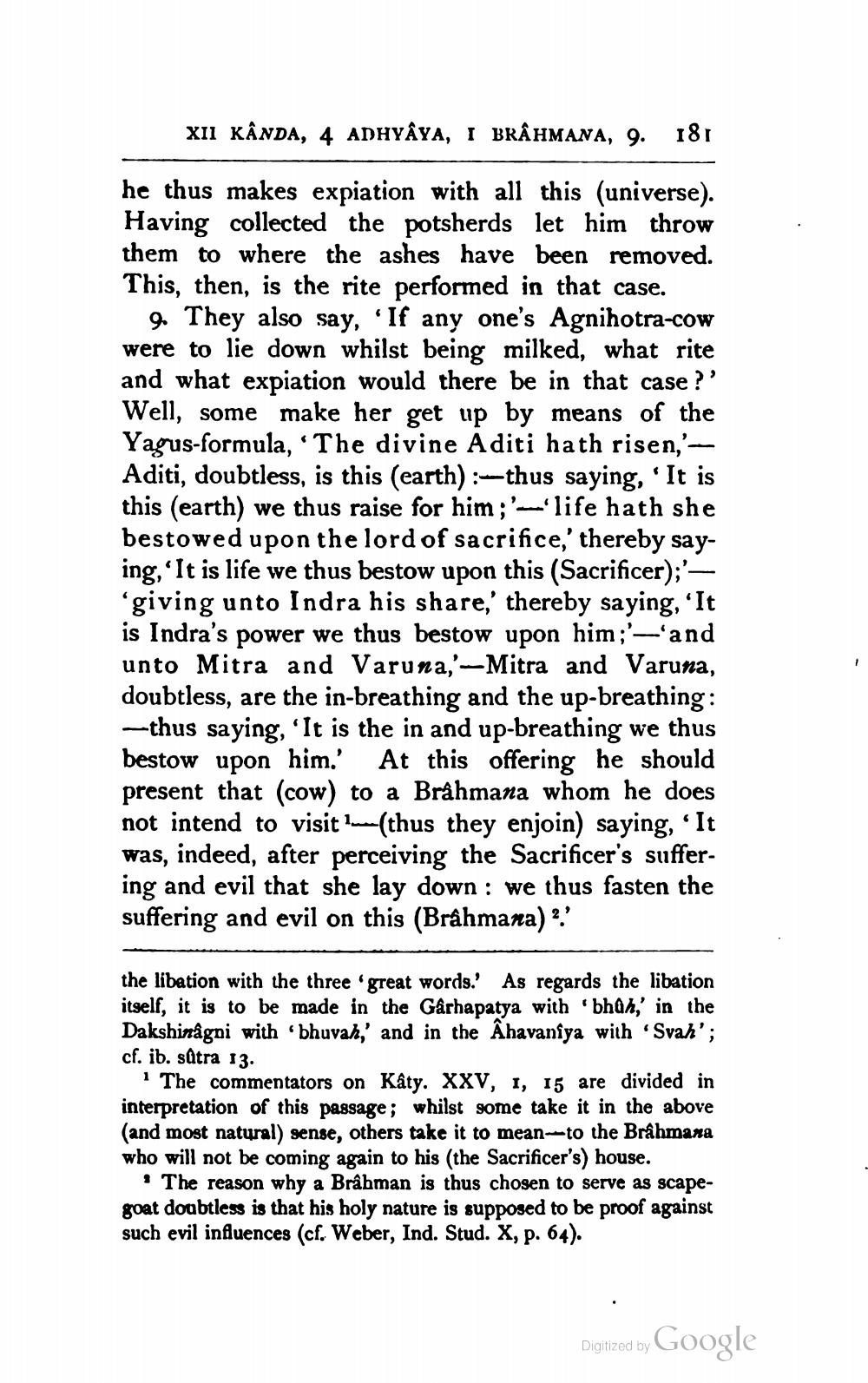________________
XII KÂNDA, 4 ADHYÂYA, I BRAHMANA, 9.
he thus makes expiation with all this (universe). Having collected the potsherds let him throw them to where the ashes have been removed. This, then, is the rite performed in that case.
9. They also say, 'If any one's Agnihotra-cow were to lie down whilst being milked, what rite and what expiation would there be in that case?' Well, some make her get up by means of the Yagus-formula, 'The divine Aditi hath risen,'Aditi, doubtless, is this (earth):-thus saying, 'It is this (earth) we thus raise for him;'-life hath she bestowed upon the lord of sacrifice,' thereby saying, 'It is life we thus bestow upon this (Sacrificer);''giving unto Indra his share,' thereby saying, 'It is Indra's power we thus bestow upon him;'-'and unto Mitra and Varuna,'-Mitra and Varuna, doubtless, are the in-breathing and the up-breathing: -thus saying, 'It is the in and up-breathing we thus bestow upon him.' At this offering he should present that (cow) to a Brahmana whom he does not intend to visit (thus they enjoin) saying, 'It was, indeed, after perceiving the Sacrificer's suffering and evil that she lay down: we thus fasten the suffering and evil on this (Brahmana) 2.'
181
the libation with the three 'great words.' As regards the libation itself, it is to be made in the Gârhapatya with 'bhân,' in the Dakshinâgni with 'bhuvah,' and in the Ahavanîya with 'Svah'; cf. ib. sûtra 13.
The commentators on Kâty. XXV, 1, 15 are divided in interpretation of this passage; whilst some take it in the above (and most natural) sense, others take it to mean-to the Brahmana who will not be coming again to his (the Sacrificer's) house.
The reason why a Brâhman is thus chosen to serve as scapegoat doubtless is that his holy nature is supposed to be proof against such evil influences (cf. Weber, Ind. Stud. X, p. 64).
Digitized by
Google
1




